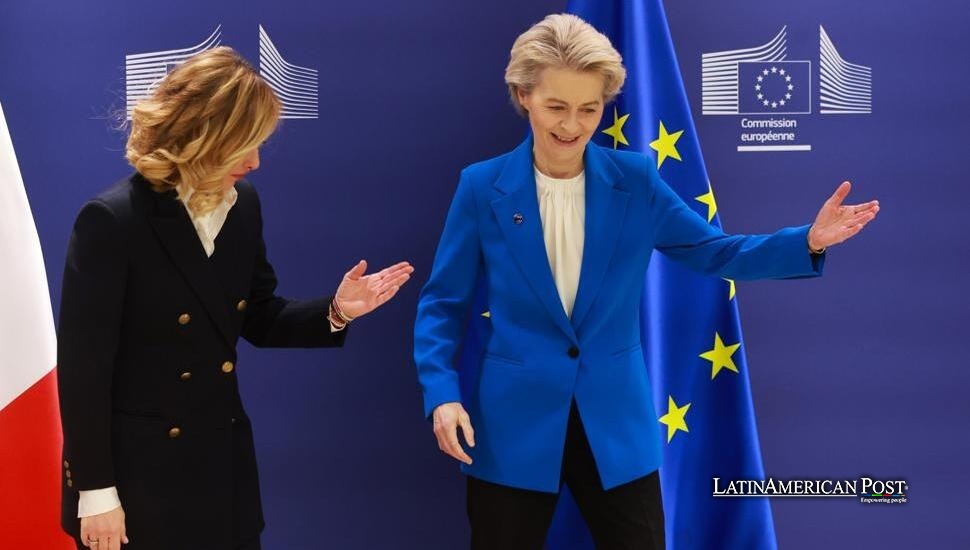South America Trade Deal Signals Progress Despite France’s Protectionism

This month, Uruguay signed one of the largest trade agreements in history, starkly contrasting global economic visions. While South America and the European Union moved closer to free trade, resistance from protectionist forces, particularly in France, highlighted the ideological divide between open markets and protectionism.
A Free Market Opportunity for Growth
The EU-Mercosur bloc (Argentina, Brazil, Paraguay, and Uruguay) deal opens the door to a new period of global trade. With lowered tariffs and a more rapid flow of goods, this trade could be a win-win for almost 800 million people. South America’s agricultural sector will gain greater access to European markets, while EU manufacturers, including carmakers and wine producers, will find a receptive audience in Mercosur nations.
When countries use their own strengths, they focus on what they do best, generate new ideas, and offer goods at good prices. Mercosur has rich soil and good weather, so it provides top-quality farm products at cheaper rates. At the same time, European businesses, supported by advanced technology, supply products that satisfy the growing needs in South America.
There are many opportunities for economic growth and consumer benefits for both regions. Less expensive items, better trade relationships, and new work opportunities in export-focused sectors probably demonstrate the advantages of this agreement. Simultaneously, European industries, bolstered by technological sophistication, can deliver goods that meet rising demands in South America.
Economic growth and consumer benefit are important to both sides. This agreement’s strengths include cheaper goods, better trade relationships, and new jobs in export-focused industries.
The French Dissent: A Misguided Opposition
Despite these clear benefits, France has emerged as a vocal opponent, citing fears of harm to its farming sector. French President Emmanuel Macron calls the deal “unacceptable in its current form,” sharing the same feelings as farmers who worry about more competition from South America’s less-regulated farmers.
However, this opposition ignores the broader benefits of free trade. French farmers say South American producers have fewer rules for workers and pesticides, allowing them to sell at lower prices. Those are things to worry about, but the settlement works through those divisions. Tariffs are fixed, and liberalization is progressive, and the result is a way of stopping European markets from becoming overtaken by imports. Besides, French wine, cheese, and other premium exports will have new markets in Mercosur countries, compensating for any losses in the agricultural sector.
Protectionism pushed by French farmers would shrink economies and inhibit innovation. It feeds inefficiencies into heavily subsidized agricultural production and kills the prospect of modernization. Instead of staying put, France might now embrace agricultural reforms to increase productivity and competitiveness.
Strengthening Ties Amid Global Fragmentation
It is also a trade deal that provides an antidote to rising global protectionism. With the US under President Donald Trump signaling a backsliding on free trade, the EU-Mercosur deal puts economic integration back on the map.
Greater integration of South America with Europe can be geopolitical, too. China’s growing influence in Latin America pushes the EU to connect more with South America. The agreement gives South America a different path for its economy. Partnerships with allies help both groups handle global trade challenges very well.
The deal supports sustainability. Adding rules for the environment and labor urges South American producers to follow practices that match European values. Enforcing these rules is difficult, but the agreement starts cooperation on common goals, like fighting climate change and improving working conditions.
Free Trade as a Path to Prosperity
Critics argue that free trade undermines domestic industries and exacerbates inequalities, but the evidence tells a different story. Open markets drive new ideas, lower prices for shoppers, and create chances for economic growth. By removing walls, the EU-Mercosur agreement shows how free trade can bring wealth to both sides of the Atlantic.
France’s resistance risks missing the more significant benefits of this agreement. Instead of sticking to protectionist policies, European countries should see this deal as a chance to update and change. More access to European markets for South America can spur growth, reduce poverty, and strengthen regional integration.
Also Read: Argentina’s Milei Promotes Free Markets for Growth
The EU-Mercosur trade deal has challenges, but its potential is greater than the risks. It is proof of the power of economic cooperation in an increasingly divided world and a guide for the kind of smart trade policies the global economy needs. As the debate goes on, one thing is clear: free markets are essential for building a prosperous and interconnected future.





